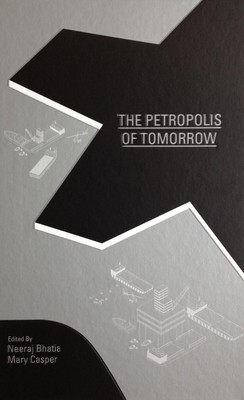
- We will send in 10–14 business days.
- Publisher: ACTAR
- ISBN-10: 0989331784
- ISBN-13: 9780989331784
- Format: 16 x 23.4 x 4.6 cm, kieti viršeliai
- Language: English
- SAVE -10% with code: EXTRA
The Petropolis of Tomorrow (e-book) (used book) | bookbook.eu
Reviews
Description
In recent years, Brazil has discovered vast quantities of petroleum deep within its territorial waters, inciting the construction of a series of cities along its coast and in the ocean. We could term these developments as Petropolises, or cities formed from resource extraction. The Petropolis of Tomorrow is a design and research project, originally undertaken at Rice University that examines the relationship between resource extraction and urban development in order to extract new templates for sustainable urbanism. Organized into three sections: Archipelago Urbanism, Harvesting Urbanism, and Logistical Urbanism, which consist of theoretical, technical, and photo articles as well as design proposals, The Petropolis of Tomorrow elucidates not only a vision for water-based urbanism of the floating frontier city, it also speculates on new methodologies for integrating infrastructure, landscape, urbanism and architecture within the larger spheres of economics, politics, and culture that implicate these disciplines. Contributions: Oriol Bohigas, Arnold Reijdorp and Casanova+Hernandez
EXTRA 10 % discount with code: EXTRA
The promotion ends in 23d.08:24:48
The discount code is valid when purchasing from 10 €. Discounts do not stack.
- Publisher: ACTAR
- ISBN-10: 0989331784
- ISBN-13: 9780989331784
- Format: 16 x 23.4 x 4.6 cm, kieti viršeliai
- Language: English English
In recent years, Brazil has discovered vast quantities of petroleum deep within its territorial waters, inciting the construction of a series of cities along its coast and in the ocean. We could term these developments as Petropolises, or cities formed from resource extraction. The Petropolis of Tomorrow is a design and research project, originally undertaken at Rice University that examines the relationship between resource extraction and urban development in order to extract new templates for sustainable urbanism. Organized into three sections: Archipelago Urbanism, Harvesting Urbanism, and Logistical Urbanism, which consist of theoretical, technical, and photo articles as well as design proposals, The Petropolis of Tomorrow elucidates not only a vision for water-based urbanism of the floating frontier city, it also speculates on new methodologies for integrating infrastructure, landscape, urbanism and architecture within the larger spheres of economics, politics, and culture that implicate these disciplines. Contributions: Oriol Bohigas, Arnold Reijdorp and Casanova+Hernandez


Reviews